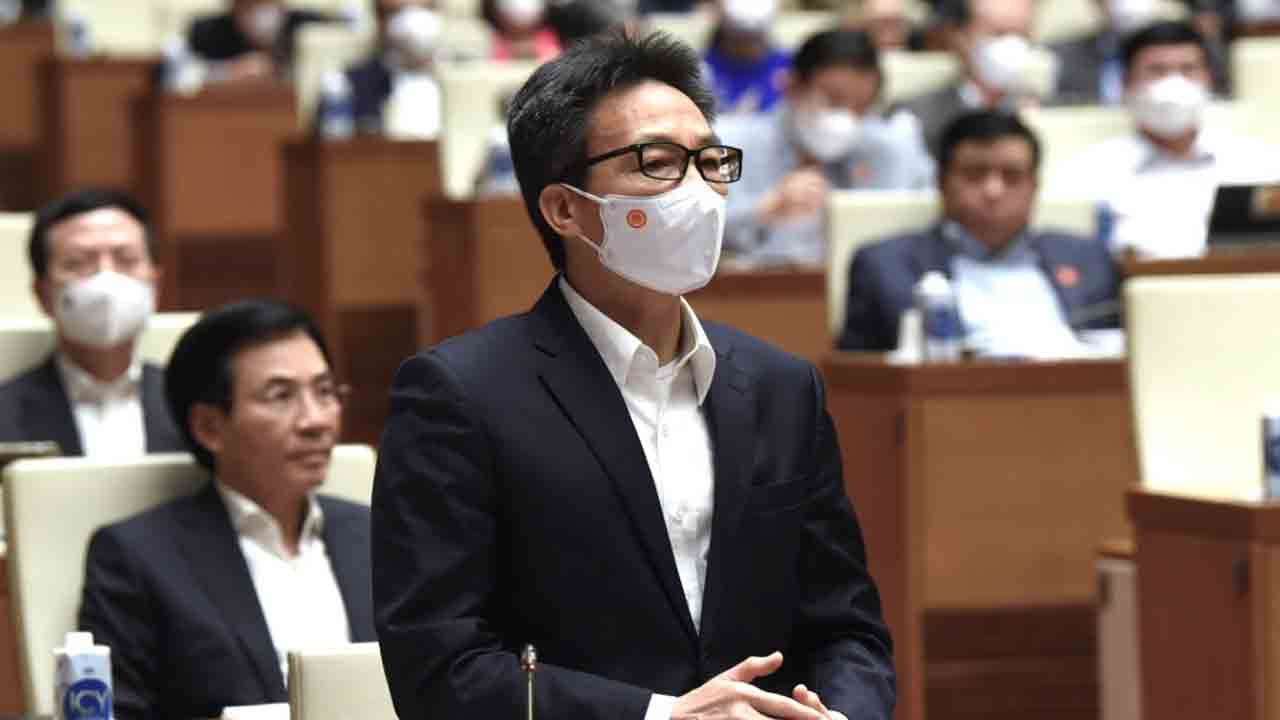HCMC – Deputy Prime Minister Vu Duc Dam has asked the Ministry of Labor, Invalids and Social Affairs and local authorities to weigh launching a relief aid package for workers returning to work.
At a question-and-answer session on November 11, as part of the ongoing National Assembly’s (NA) second sitting, Deputy PM Dam referred to the exodus of migrant workers from some southeastern industrial provinces to their hometowns, the local media reported.
Amid the Covid-19 pandemic, many regional countries, such as Thailand and Indonesia, have also faced a labor shortage like Vietnam, and have launched special relief aid packages to attract them back to their workplaces, Dam said.
He added that workers often live in crowded dormitories or run-down apartments, posing a high risk of Covid transmission. Therefore, low-cost housing development plans are in the offing.
It is important to attract workers back to help recover production while ensuring their rights.
The deputy prime minister said the 1.3 million migrant workers who left for their hometowns could be divided into four groups.
The first group comprises those who have signed employment contracts with large enterprises in industrial and export processing zones. They received a part of their salaries during the pandemic, so they might return to work.
Those in the second group were employees at small factories and projects. They have no employment contracts with employers, so it is unknown when they will return to work.
The third group included self-employed workers. The number of these workers in the southern region, especially in HCMC, was significant. Meanwhile, those in the last group were dependents of laborers, helping take care of their children.
According to Dam, local authorities must keep anti-pandemic measures in place and reopen in-person classes, especially at preschools and primary schools, as most workers’ children are in these age groups.
In the long term, enterprises need to commit to paying part of the salaries of workers in case of coronavirus outbreaks.
The Government also needed to review the anti-pandemic process, ensuring safety and flexibility in testing and handling Covid cases and direct contacts of positive Covid cases in enterprises.
NA Chairman Vuong Dinh Hue required clarifying reasons for the exodus of migrant workers, the responsibility of State management agencies in the issue, solutions to respond to the lack of laborers in some southern localities, and ensure the livelihood of workers in their hometowns.
He said the pandemic, especially the fourth wave, had heavily hit enterprises’ production and business and residents’ livelihoods.
Therefore, he required comprehensive solutions to help the labor market recover. The Government should accelerate the deployment of relief packages, ensure workers have quick and convenient access to the packages, prevent violations, and study other support packages.
At the Q&A session, NA Deputy Nguyen Duy Minh from Danang City said many employers had paid salaries equal to or insignificantly higher than the regional minimum wages, causing multiple difficulties for workers to cover their daily needs.
In response, Minister of Labor, Invalids and Social Affairs Dao Ngoc Dung said the Government’s Resolution 27 on wage policy reforms should have been deployed from July 1 but had been delayed due to the pandemic.
The competent agencies are piloting the reforms in three firms before extending nationwide, Dung noted.
Wage policies at enterprises will be changed dramatically in the coming periods. Employees will negotiate with employers based on the development of enterprises, welfare benefits and the regional minimum wages.









